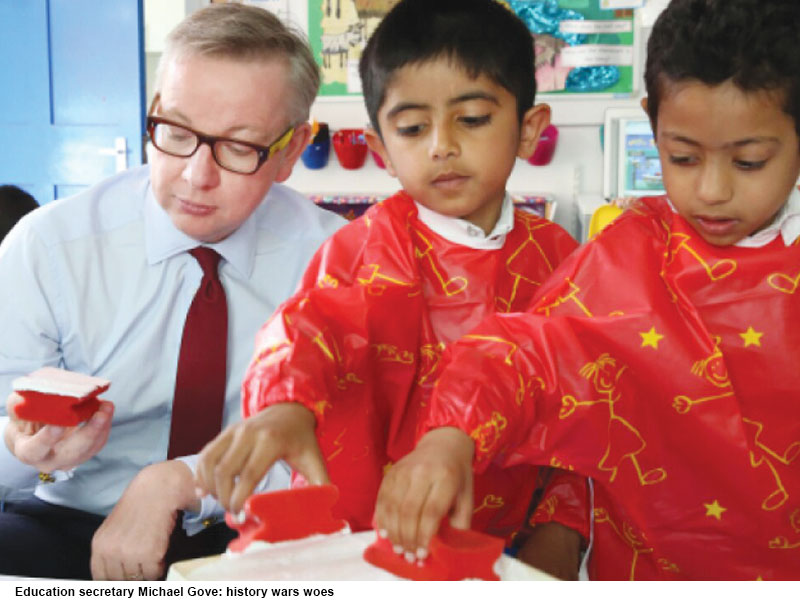United Kingdom: History revisionism debate

In his four years as UK’s education secretary, Michael Gove has learned that no subject on the curriculum is as contentious as history. As he acknowledged in a speech in 2013, it can be an “ideological battleground” for “contending armies”. In the past few months, UK’s history wars have spilled onto the streets. Revisionism has required toppling statues rather than hosting seminars; the worth of literature classics and television is being radically reappraised. Campaigners want the curriculum “decolonised” and the history of black Britons made compulsory in schools.
Partly in reaction to such demands, Policy Exchange, a think-tank close to the government, launched a “history matters” project on June 29, to “address the rewriting of history as it happens”. But right-wingers are equally keen on disseminating the ‘right kind’ of history. Gove’s first attempt to rewrite the history curriculum to give “a connected sense of the narrative of our islands” was widely criticised as narrow and triumphalist.
Yet demands to add or remove pet topics from the national curriculum are largely pointless. Most children attend academy, free schools or private schools, none of whom are bound by the curriculum. In any case, it only applies until children turn 14, when the subject becomes optional, and provides vague menus of suggested topics that leave teachers plenty of choice. “The power is really with history teachers and schools,” says Michael Riley of University College London. “They have the freedom to devise the curriculum they want.”
Many are beginning to do just that. According to a survey in 2019 by the Historical Association, an educational charity, about four in ten state schools have altered their lessons in the last two years to include a broader range of history. Take Jaspreet Kaur, a history teacher who likes to ask “who am I ignoring?” when planning lessons. That has meant educating her pupils about Sophia Duleep Singh, an Indian suffragette, as well as Emmeline Pankhurst. She argues that teaching topics in a way that allows all her students to identify with the protagonists makes for “more passionate historians”. Hannah Cusworth, head of history at a school with a sizeable minority of black pupils, teaches children about Miranda Kaufmann’s book, Black Tudors, in part to demonstrate “there was a history before slavery”.
In the end, change is likely to come organically. Teachers are most comfortable talking about topics they themselves were taught. As university curriculums evolve, so will the classroom. And as academics like Kaufmann unearth more neglected stories from the past, teachers like Cusworth will be excited to pass them on. History may be a battlefield, but its terrain is always shifting.
(Excerpted and adapted from The Economist)















Add comment